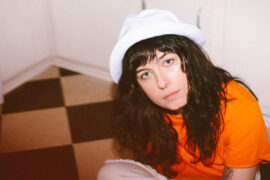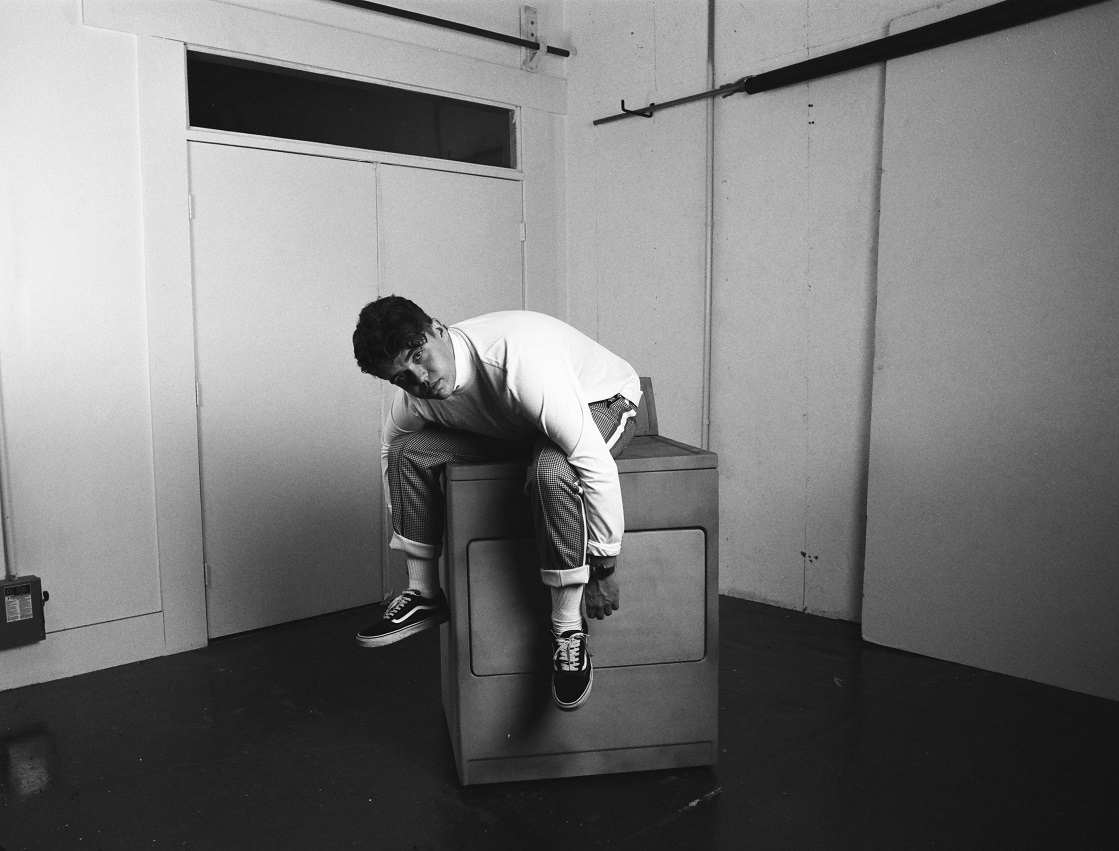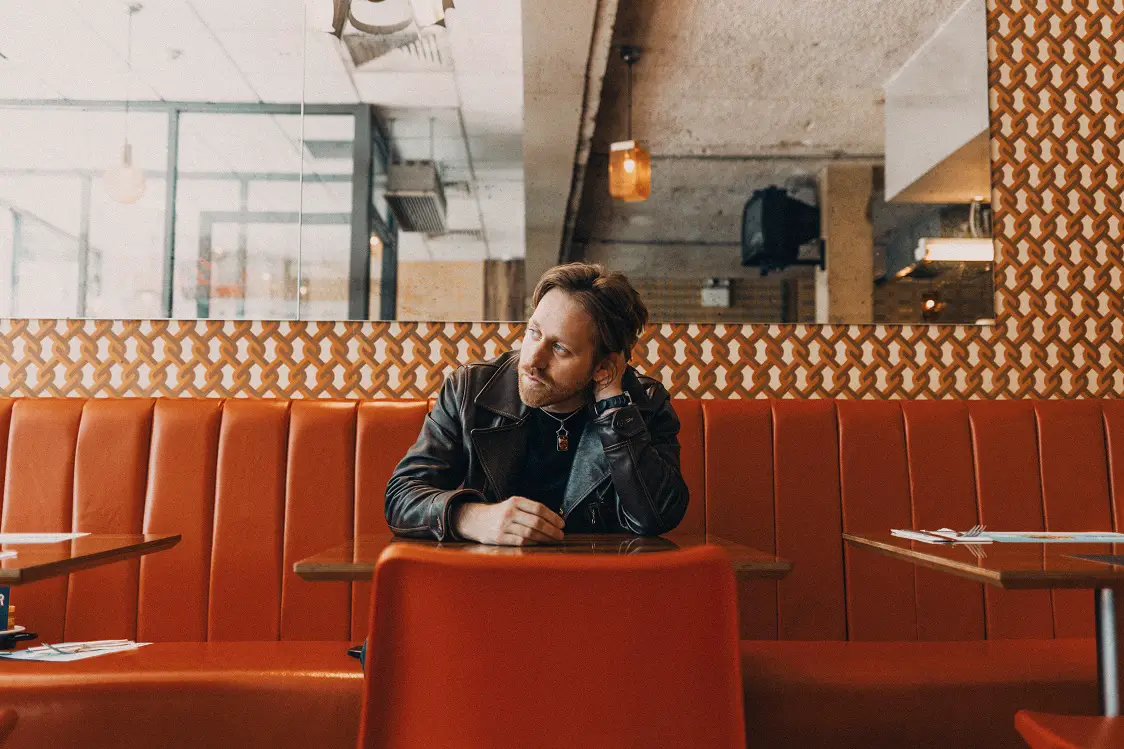Embracing life, death, and everything in-between, David C Clements’ sophomore album ‘The Garden’ is a warm and wondrous alt-folk record aching with the weight of one soul’s raw, unfiltered, and exposed humanity.
Stream: “Already Here” – David C Clements
The album is about life itself and the search to make sense of it and find meaning in it, looking for ‘The Garden.’
David C Clements isn’t just asking the ‘big questions’ on his sophomore album; he’s finding his own answers.
Or at least, coming to some important, long-sought conclusions.
Who are we, and why are we here? What is the point of life, and how should we go about our days? At some point, each of us begins the long slog – that endless, ageless series of philosophical reflections, refractions, and reckonings, for which there are no definitives; only theories and uncertainty. It often feels futile to put such time and effort into that which lacks explanation, but we can’t help but ponder our own existence, knowing that we’ll never know for sure…
Unless, that is, we stop asking and start answering, which is exactly what Clements did – channeling what was once his own torment into a resounding personal triumph. Embracing life, death, and everything in-between, The Garden is a warm and wondrous alt-folk record aching with the weight of one soul’s raw, unfiltered, and exposed humanity. Eight years’ worth of joy and sorrow, growth and grief cannot possibly be filtered down into just eleven songs, and yet David C Clements has done just that.
And it’s within this musical time capsule, if we look and listen hard enough, that we just might find some of those answers we’ve all been looking for.
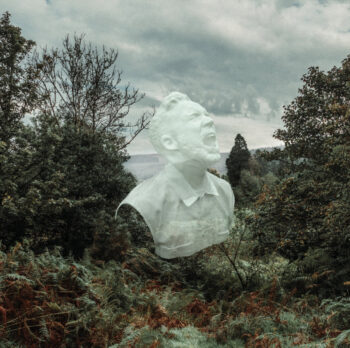
I don’t understand how it is we came
Somehow to believe we’d just start again
Like all the shitty things we’d ever said
Would cease to exist,
but they’re still bouncing round my head
For all the lovers who stayed in bed
All the dreamers who kept their minds fed
All the fathers sleeping in the town
All the mothers just trying to hold it down
I’m starting to think that all the books we read
Can’t send us to heaven,
they won’t send us to hell
You say the end is near,
but it’s already here
– “Already Here,” David C Clements
Released September 20th via Third Bar Records, The Garden is a long-awaited and very welcome return for Northern Irish singer/songwriter David C Clements. Arriving eight life-changing years after 2016’s breakthrough debut album The Longest Day in History first introduced Clements to the world, his second record arrives as a kind of new beginning – a fresh start that acts, once again, as an introduction to the artist, to his heart and soul, his story, and his sound.
As Clements tells Atwood Magazine, this record is quite literally years in the making. “I started this album back in 2017 with Michael Keeney, who produced my first album,” he recalls. “Our initial plan was simple; meet one evening a week to work up the demos that I had written, and once we have a first mix on them, we’d send them around a few people to gauge the interest. The first people I sent mixes and demos to were Gary Lightbody (Snow Patrol) and Davy Matchett, who run Third Bar in Belfast, which is an artist development and record label. Gary felt that there was something special in the songs even at that early stage, and was really keen for Third Bar to be involved. Gary was really the catalyst for what the album was to become. He flew me out to LA to work with Jacknife Lee, which was an incredibly challenging, yet liberating experience. I was pushed way out of my comfort zone, but found myself in a new creative place less bound to the idea of the sort of artist I thought I was. We finished one track that week, and another remotely during the first lockdown in 2020.”
“After the success of that week, Gary really wanted me to try more co-writing, something I had never really done before with my own music. He suggested working with Iain Archer (James Bay, Noah Kahan), whom I’d know for a while. I’d always been a huge fan of his own music and had a good feeling we’d work well together. That was confirmed in our first session when we wrote the song ‘Contrast’ in a morning. I then flew over to Brighton for a weekend to work with him at his studio where we wrote and recorded ‘Little Outsider,’ with ‘To Be Low’ then co-written and recorded remotely. I remember crouching under a duvet in my bedroom putting down the vocal for it. It was incredible to get to work with three of my favourite producers, with Keeney being the constant that I needed throughout. It all started with just me and Michael, and there’s no one else that could’ve got it over the line. It took his patience and his sheer musical brilliance to guide us through multiple versions of songs and three different producers to the point where we had an album that felt like a complete piece of work. Gary’s help with that was invaluable too; pushing me to write when more writing was needed and his advice on song choice and track listing was amazing.”
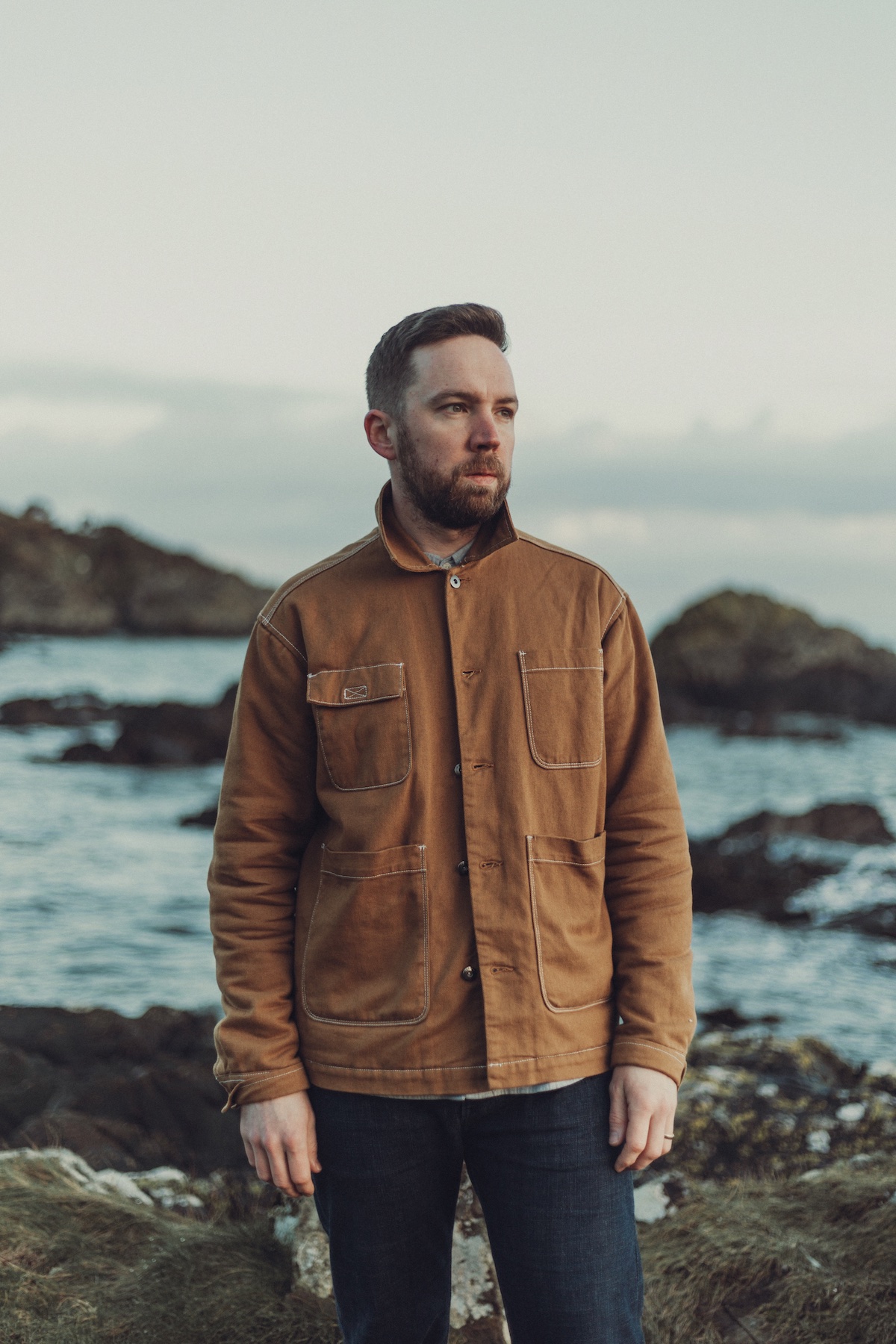
For Clements, time itself was a blessing and a curse, but certainly not a crutch.
It allowed him to feel out and finesse each song, and it granted him the opportunity to grow creatively beyond the four walls of his first LP.
“I think I worry less about what sort of artist I want to be, or even supposed to be, and instead just try to make music that I like, inspired by whatever moves me in the moment,” he says. “Creativity shouldn’t be bound too much by genre, or indeed your own back catalogue.”
“In terms of the lengthy time between, I guess the easiest answer is life just got in the way!” he smiles. “I have a couple of kids that keep me busy and a life that doesn’t always leave a lot of time or energy for much else. There were definitely times that I was incredibly frustrated with myself and how long it took us to get it over the line, but when I look back, I am very grateful that we gave the album the space that it needed. There are really important songs on there that would not be on it, had we hammered it out in a year or two.”
Keeping an open mind allowed Clements the freedom to explore, experiment, and let the songs naturally become their own entities.
It was a process of slow, but steady discovery – of waiting for those eureka! moments that come only when you create a space for them to arrive in their own time.
“What I have is less a vision and more an innate drive to create something,” he explains. “I enjoyed playing about with new sounds and ideas when demoing songs and was keen to explore that in the record. I’d been using some analogue drums machines and a little Teenage Engineering pocket operator to come up with synth sounds which was a super helpful way of approaching writing differently and stir up ideas. I had no idea how the album would turn out, I just knew we had to make something.”
“I suppose the vision shifted and changed with each new producer and writer that became involved, and that really helped to shape the overall arc of the album. It really wasn’t clear to me until quite late on what it was that we’d actually made. As the recording process was so spread out, I’d mostly been listening to mixes in isolation from one another. It was only when we started tentatively putting track listings together and listening through as a whole that it hit me how special the album was.”
“There’s songs on the album that feel like a continuation of the last record; songs like ‘Orlock’ and title track ‘The Garden,’ but for the most part we tried to push the boundaries of the sort of music I thought I could make,” he continues. “We made a conscious effort to keep the song at the heart of anything we did, which is what we’ve always tried to do, which is why I think it still sits well with anything I’ve done before. You could strip away any production and recording techniques and still be left with a song that feels raw and heartfelt. Hopefully this album will feel fresh to people, and yet the songs and my voice give it a familiarity too.”
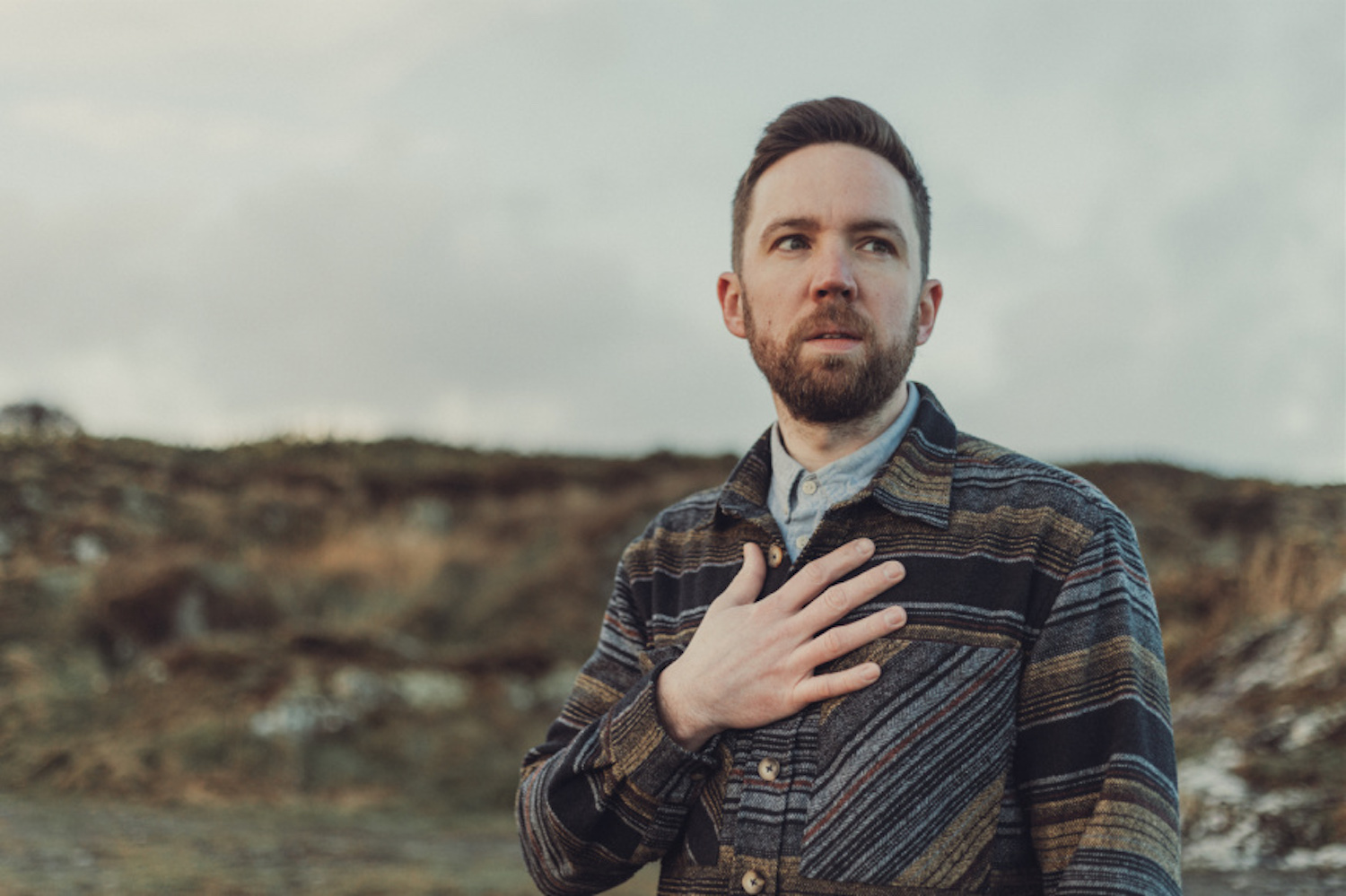
When asked to describe his record, Clements pauses for a beat before reliving a memory with one of his producers.
“I’ll go with what Jacknife Lee encouraged me to put into the song ‘Already Here’ over an email when talking about rewriting parts of it,” he relays. “He told me to write it deeply with ‘Joy, Death and the other stuff.’ I know that’s cheating slightly, but that advice was so powerful when rewriting that song that not only is it the opening track of the album, but it sets the tone of everything else to come.”
The album’s title itself comes from Clements’ themes of inner and outer exploration – of that quest for understanding, purpose, meaning, and fulfillment.
“Like so many of my friends, my thirties have involved a search for meaning and purpose in what I’m doing with my life,” he says. “I used the idea of the Garden of Eden to represent the search; ‘Been wandering round for years looking for the garden.’ For me, the album is about the end of looking beyond ourselves for meaning, and instead finding it within our own humanity. That we grow our purpose around ourselves with those we love.”
Highlights abound on the journey from the album’s impassioned, achingly evocative opener “Already Here” (which begins with the line, “Oh my God for years I’m trying, but I can’t stop the thought of you from dying) to its poignant conclusion, “Ghost of a Loved One.” Memorable moments include the breathtaking beauty and soul-stirring tenderness of title track “The Garden,” the spirited, dramatic churn of “Reckless,” the feverish rush of “Orlock,” the vulnerability and sheer brutality of “To Be Low,” the richness and sweet, harmony-laced release of “Summer Sedative,” and the cinematic strength of “Life in a Bad Dream.”
“My favourite track is ‘Already Here,’ which opens up the album,” Clements says. “There were a number of songs that I’d written that were along similar lines, songs about an unravelling of a world view and a system of belief, but this one captures the pain of moving on as all the reasons stack up until the eventual relief of making it out the other side. It’s really a breakup song at its heart.”
“There’s so many lyrical moments on the record that I’m deeply proud of,” he adds. “I tried to write with raw honesty, more than I ever have before. One of my favourite sections is the middle 8 of ‘Summer Sedative.’ For me, it captures the feeling of weathering out long, tough winters and longing for the sun to shine both in my head and outside: I am a bird, caged, trying to hover. I am young love waiting for summer. Pulled from the car crash, trying to recover. I’m like wine turned back into water. Oh god, won’t you just bring back summer?”
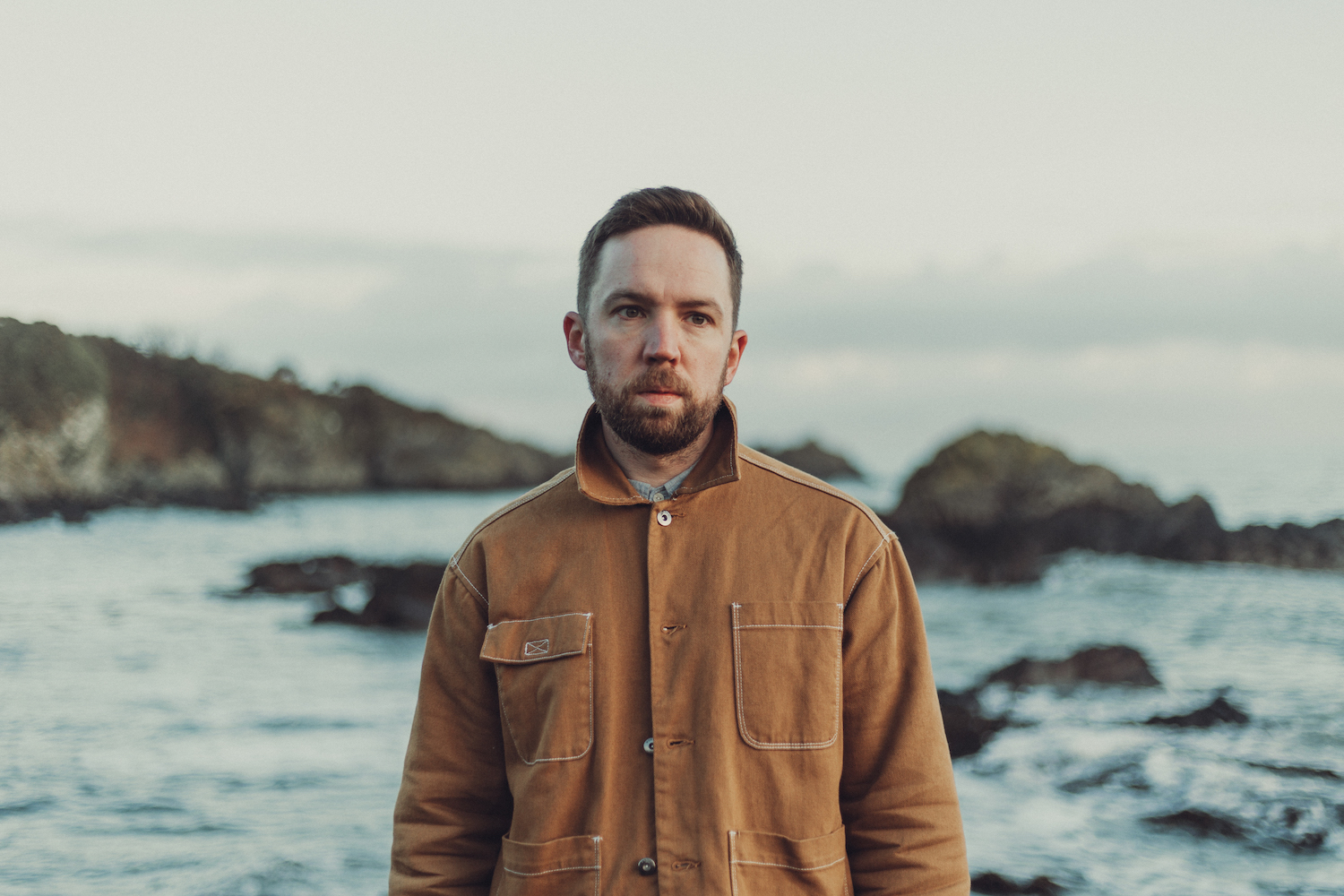
Ultimately, The Garden is a heartwarming, spellbinding soundtrack with a refreshing outlook on life itself.
David C Clements’ album doesn’t tell us how to live our lives – and from the sound of it, he’s still figuring all that out himself. But what he does uncover, in these eleven songs, are nuggets of wisdom that ultimately inspire us to look within, rather than outside of ourselves, for those ever-elusive answers.
“The songs will hold different meanings for different people, but I will try and sum up what they mean to me. It is about lives coming into the world, two to be precise, and my responsibility to help shape them and the world they live in. It is about lives leaving this world and how we find ways to cope with that. It is about mental health and trying to restore peace in the mind. It’s about love in all its forms, the joy it brings and the pain. And in some ways, it’s a breakup album, not with a person, but with a system of belief.”
“The Garden, like most albums, is about no one thing. Instead, it is about everything.”
Clements hopes his album will enrich and inspire those who listen, and ultimately that it will foster a space of connection in our shared human experience.
“It’s an album about life and death, of love and of loss with a mental health thread woven in and out of its fabric. What I’d love people to take from it is a sense of comfort in the shared experience of life, that they’d see the hope in it and feel the joy that I can’t help but feel when I listen back to the album,” he shares.
“Someone described me as writing about ‘empathy and escape, the mundane and the unmeasurable,’ which I really loved. So often life’s big moments are intertwined with the mundane and the older I get the more I’m aware that I need to be paying attention to the life that’s going on around me in the present as when all is said and done that is what truly brings me joy and contentment.”
Experience the full record via our below stream, and peek inside David C Clements’ The Garden with Atwood Magazine as he goes track-by-track through the music and lyrics of his sophomore album!
— —
:: stream/purchase The Garden here ::
:: connect with David C Clements here ::
— —
Stream: ‘The Garden’ – David C Clements
:: Inside The Garden ::
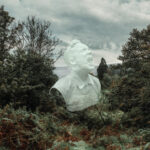
— —
Already Here
“Already Here” is in essence a break up song. A parting of ways, not with a person, but with a system of belief and finding great peace in that. The track is a classic ‘build and release’ song which the producer Jacknife Lee created, not with the typical big band sound that I was tempted to use, but with taking a live band sound and messing with it. Making it weird. There’s drums, but they follow unusual patterns. Instead of crashing cymbals there’s synths opening up. In many ways it sets the tone for the album so for us it had to be the opening track.
I began writing this song using a little hand held 16 step sequencer made by teenage engineering, putting words over an electric beat and synthy sounds. I played it to Jacknife when I was with him in LA and we began working on it before he decided it needed some more writing. He pushed me to be honest in my writing, to just say what I wanted to say instead of expressing myself through metaphor. With that in mind I rewrote the first verse and chorus and during the first lockdown I recorded a vocal in my garage, pausing for every car that went past. Jacknife took that raw vocal and turned it in to something that I could never have imagined the song could be.
Reckless
I began writing “Reckless” after moving my childhood upright piano in to my house. I’d had this little guitar riff that I’d happened upon in a soundcheck, and something about those notes resonating when played on the piano brought a whole new mood to it and the song just flowed out from there. It’s an all-encompassing song about love. To love and be loved. The highs, the lows and the joy of the normalities of everyday life.
“Reckless” was part of the very first recording session for the album with Michael Keeney. The drums, bass and rhythm guitar were recorded live and then taken to Keeney’s studio where he worked his magic with drum machines, layered vocals and a manic ending befitting a song about enduring love.
To Be Low
“To Be Low” is a song about mental health and the importance of opening up and being honest with each other which is difficult for so many of us to do but gets easier as more of us do.
I co-wrote it with Iain Archer who added a bunch of cool stuff to after I sent him the piano part and a vocal I’d recorded under a duvet in my bedroom. The track was finished off with Michael Keeney who drew out some of the weirder elements to take it away from a straighter piano ballad and more towards a sound that reflects a song about mental health struggles.
Little Outsider
“Little Outsider” is a song I wrote with Iain Archer about the joys and madness of having kids. About how disorientating it can be, how at times you’re constantly trying to find your footing, but also how there’s so much happiness to be found in all of those moments.
I flew over to Brighton at the start of March 2020 for a session with Iain Archer where we wrote Little Outsider and got a guitar and vocal recording of it and Contrast which we’d written during our first session. There was a little talk about Covid-19 and how worried we should be, little did we know how different things would look by the end of that month. We were very lucky to have got that session in and to have the basis of a song that Iain then built up the instrumentation on. There was a bit of back and forth on it before eventually being finished off with Michael Keeney back in Bangor a couple of years later.
Summer Sedative
“Summer Sedative” is a song about oppressive winters and dreaming of those long summer days. It’s about escape. Getting out of your head and out of your house. The search for freedom from the seasons and from yourself.
I started writing this on my little Korg drum machine building a beat and then messing about with the kick until it started to sound like a monotone pulsing synth bass line. I played it on loop in my car and sang over it coming up with the verse. I sent this over to Jacknife Lee who replied with a quick voice note idea for a sort of call and response style chorus. I brought all this in to the studio with Keeney and once we started adding in the real instruments the song came to life. The drum machine playing off the acoustic drums brings a real groove and the piano and guitars brought depth and drive to it all building to what feels like a joyous resolve at the end of the song. My friend Hannah came into the studio to record the chorus vocal and we then sent the track out to anyone I knew with a mic to record the group vocal at the end which Keeney beautifully mixed in.
Life in a Bad Dream
“Life in a Bad Dream” is a song about depression and the people we look to, to help us out of it. It’s about feeling hopelessly trapped in the dark, but being slowly brought through by the ones we love. It’s hard not to hide behind metaphor when writing a song like this, but I wanted to try and get across the feeling of being deeply low and what a lifeline people can be.
This track was produced by Jacknife Lee at his studio in LA. The process of making it pushed me beyond what I thought I could be as a “singer/songwriter.” It took me way out of my comfort zone, but it was incredibly liberating to begin rediscovering myself in this new musical landscape. They were my ideas, but framed differently. In all honesty it was only as I listened to the track while waiting for my plane home that it all clicked in to place and I was really struck by what we’d made. Which was lucky really as it would’ve been a long way to go to make something that I didn’t like.
Contrast
“Contrast” was the first of my co-writes with Iain Archer. I’ve been a fan of his for years and was really excited to work with him. Iain has a real knack for connecting with people and drawing songs out of you that you still feel real ownership over so the sessions proved to be very fertile ground. The song itself is about connection and a celebration of our differences, the search for more understanding and empathy in an ever contrasting world.
We wrote the majority of the song in our first session together in Keeney’s studio and fleshed out the rest of the lyrics over email before recording a vocal and acoustic version while I was at Iain’s studio in Brighton. We went back and forth on a couple of different full band versions before Iain decided to send the acoustic track to his friend Oli Kraus. Oli layered it up with strings that really drive the song along and give it a sound that in itself stands in contrast to the other tracks on the album.
Dreamcatcher
“Dreamcatcher” is a song of defiance. Like a lot musicians I know I’ve had many periods doubting the process and considering quitting writing altogether, but this song is me accepting that writing music is so much a part of who I am now that there’s just no stopping it. I’ll always be writing songs, trying to pull ideas out of the ether and articulate them in to a song. I’ll always be chasing that no matter who’s listening.
“Dreamcatcher” was another song that started out in the very first recording session with Michael Keeney. The electronic drums and synth bass came from my little teenage engineering pocket operator synthesiser and I love the marriage of sounds on the track. Michael is a steady hand and a great judge of ideas which I’ve needed at so many points of the process. He guided this track in to a dreamlike state in the middle 8 which is my favourite moment in the song. My friend Hannah came in and recorded backing vocals on it too which really helps the melodies flow along in the choruses.
The Garden
“The Garden” is a protest song I wrote while my daughter was still very young. There are many that will write much more eloquently and succinctly about gender bias and inequality in our world than me and are far more qualified to do so. What I will say is it’s a song about a Dad simply wanting his daughter to grow up with the freedom to be whoever and whatever she wants to be.
“The Garden” was one of those songs that we ended up with a few versions of. I couldn’t help but go back and compare each version to the original demo and the ‘proper’ recordings just weren’t capturing whatever it was in the original demo that kept drawing me to it. It wasn’t overly thought through, just recorded straight in to the mic on the laptop, and it wasn’t a perfect performance, but it captured the essence of the song. With that in mind Michael Keeney sat me down in the studio and had me play it live, just me and the acoustic guitar. We got it on the first take, again because I wasn’t over thinking it. We tried a few more takes, but couldn’t top it. Like the demo it’s more about a capturing the real feeling of the song rather than a perfect take. We added a few more elements, every time being mindful of that first take and not over shadowing it.
Orlock
“Orlock” was born out of one of those drives that people with young kids will be familiar with. I was on my afternoon drive trying to get my daughter to sleep doing my usual loop out to Donaghadee and back to Bangor by the coast road when I stopped in at Orlock, which was where I proposed to my wife. With my daughter sleeping in the back of the car I started noting down some thoughts on the various paths our life has gone down since then, the collection of those being the basis for the song.
We threw “Orlock” into the recording session last minute during the first day with Michael Keeney. We had a few extra minutes so figured we’d put it down quickly before finished. The takes came together quickly and naturally for us, felt like a familiar energy. The ideas flowed easily and along with some chuggy violins and friends remotely recording the group chorus vocal the song was done.
Ghost of a Loved One
I wrote “Ghost of a Loved One” after losing a beloved auntie of mine. She was more than an auntie really. She had a way of making all of us feel close to her, and even when she was sick she was bringing us together and showing us we were loved. After she died there was a time where I was having these dreams where she would be there. Sometimes she would be a silent comforting presence, others she would say something and there would be a peace in hearing her voice. I wrote the song about the feeling I was left with after waking up, a great void that I was helpless to reach across.
This was the very last song to be recorded for the album. It started out as a gentle piano tune that we built up, always trying to remain true to the core of the song. We put some cello down which in Keeney’s words “makes it sound expensive” but truly adds some depth and earthiness to the track. To be honest it was hard to remain detached enough from the emotion of it to get a decent vocal take and it still feels raw when I sing it now.
— —
:: stream/purchase The Garden here ::
:: connect with David C Clements here ::
— — — —

Connect to David C Clements on
Facebook, Twitter, Instagram
Discover new music on Atwood Magazine
© Chris McKay
The Garden
an album by David C Clements

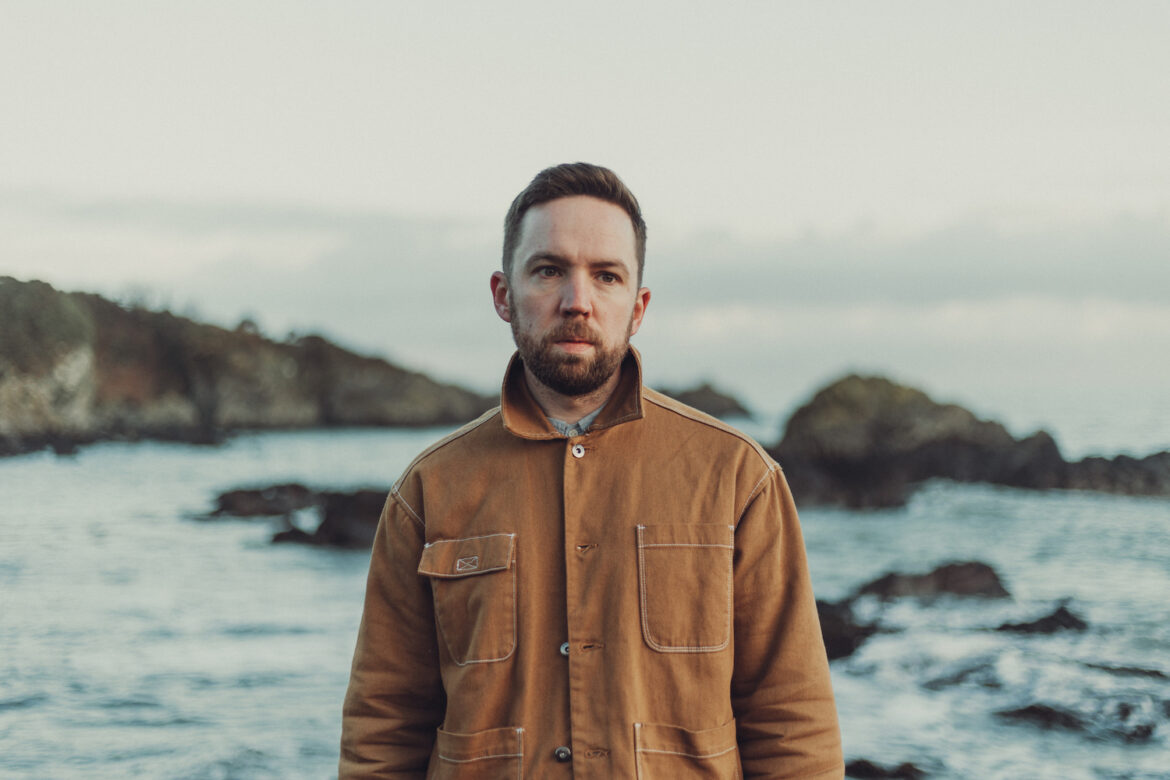
 © Chris McKay
© Chris McKay
